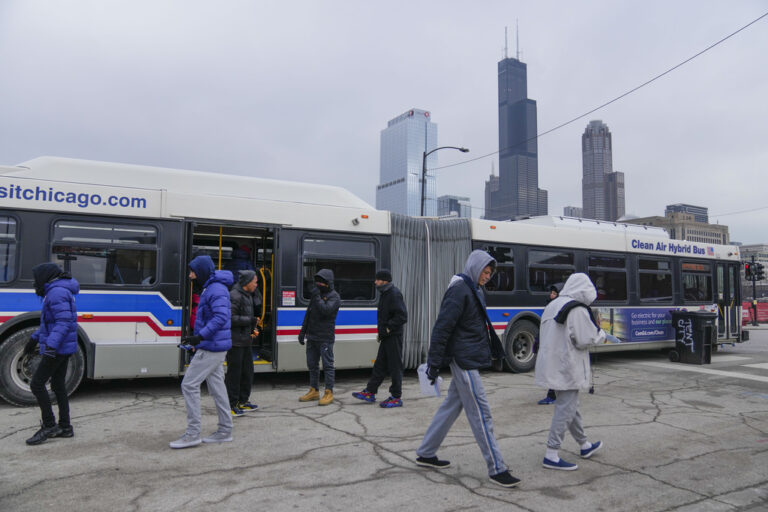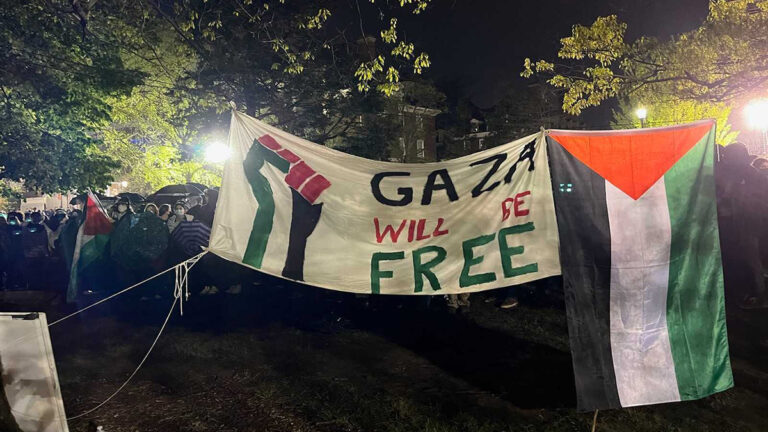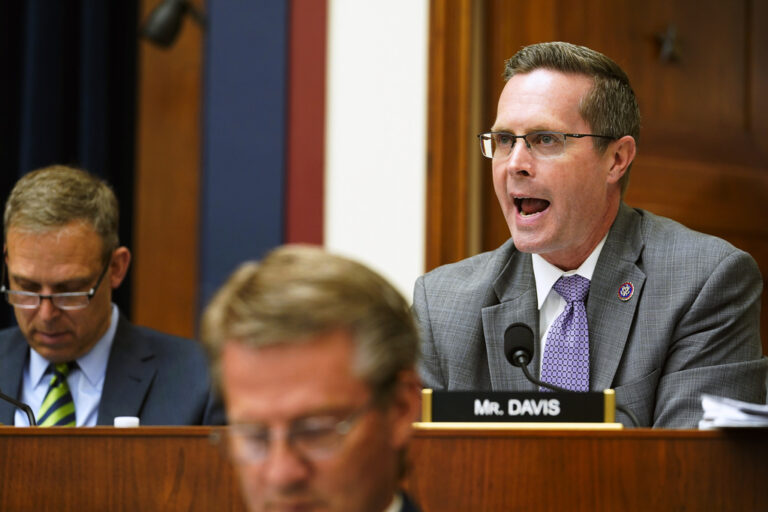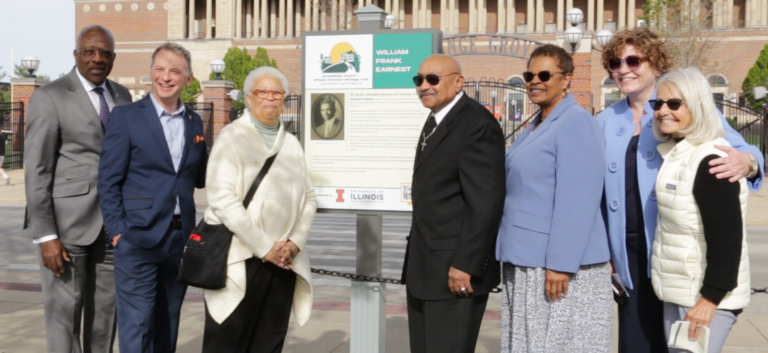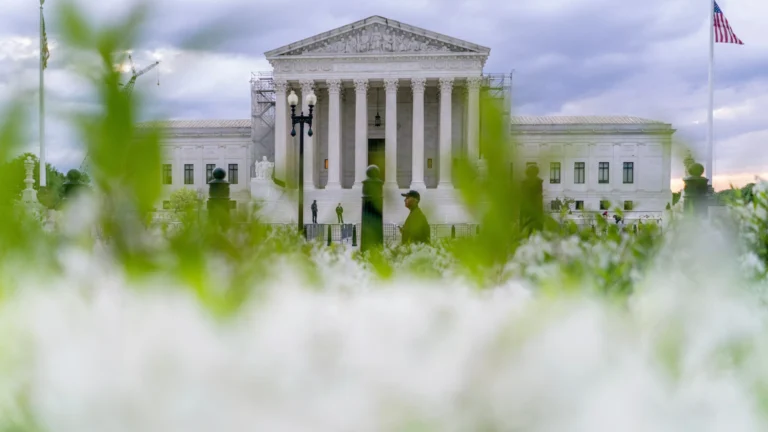CHICAGO — As temperatures hover below freezing in Chicago, dozens of asylum-seekers are staying in the lower level of a library until the bitter cold gripping much of the country lifts.
But after that, Chicago’s plans for offering immediate shelter to the growing number of migrants arriving in the nation’s third-largest city remain murky.
For more than a year, Chicago has wrestled with how to house new arrivals until shelter space is free, utilizing measures that city leaders insist are a stopgap. Last week, it was parked city buses. Before that it was police station lobbies and airports. The makeshift approach has frazzled volunteers, nonprofit groups and migrants wary of the lack of a long-term plan, particularly during the city’s long winters.
“The city’s favorite word for everything is ‘temporary,'” said Vianney Marzullo, a volunteer who has helped migrants staying at O’Hare International Airport. “It’s their new choice of Band-Aid word. Everything is temporary, temporary, temporary.”
Chicago has struggled, like New York and Denver, to deal with the crisis that started in 2022 when migrants began arriving in Democratic-led cities, largely at the direction of Texas Gov. Greg Abbott. The winter weather has further complicated efforts. Last week, New York, which has received more than 170,000 migrants, evacuated a massive tent camp ahead of a storm. Big city mayors have asked repeatedly for more federal help.
Chicago’s response has stood out for its haphazard approach with a heavy reliance on volunteers who have spent more than a year providing medical care, food and donated items.
City leaders say the situation keeps changing and there have been snags along the way.
Mayor Brandon Johnson floated the idea of a heated tent encampment, but construction was scrapped over the risk of contaminants at the former industrial site.
The city had instituted a 60-day limit for shelter stays, but delayed the first batch of notices twice because of the weather. They’ll now go out on Feb. 1, the city confirmed Wednesday. Meanwhile, the city has been heavily criticized for condition s at its shelters and the death of a young boy whose family stayed at one.
The political fight has also heated up and spread to the suburbs.
Texas Gov. Abbott’s busing operation has been dropping off migrants at all hours in different Chicago area cities without coordination. When the city began fining bus companies and filing lawsuits, Abbott fired back with chartered planes. Johnson had planned a summit for this week with suburban mayors to discuss the problem; it was canceled by the weather. His office didn’t return a request for comment Wednesday.
“This is an international crisis that requires federal intervention of which local government is subsidizing that work. Never designed to do it, but yet here we are still standing,” Johnson said last week ahead of the storm.
Illinois Gov. J.B. Pritzker also wrote to Abbott last week asking to suspend buses until the temperatures rise and with many migrants arriving without winter coats or shoes. But Abbott rejected the notion, saying the federal government needs to step up.
More than 33,000 migrants, mostly from Venezuela, have arrived in Chicago since 2022. Currently, nearly 15,000 migrants are living in 28 shelters and the city is continually opening more. Many migrants have gone elsewhere or live with family and friends in the area. Chicago, like other cities, has offered bus tickets out of the city.
The city wound down its much-maligned use of police stations to house migrants, but O’Hare International Airport is still being used, with some asylum-seekers staying for weeks at a time as they await shelter. More than 200 were there Wednesday, according to the city.
Until the weather turned, the city was keeping migrants aboard eight city buses that were running continuously and parked near a downtown highway in an area designated “the landing zone.”
Six heated tents are under construction nearby, which the city says will be used for intake and services, such as medical care. It’s unclear if they will also be used for housing.
Marylin Gonzalez, 34, slept on the buses last week along with her husband and three children, ages 15, 16 and 18. The buses were crowded with sicknesses spreading quickly.
Gonzalez described the atmosphere aboard as tense with many worried about where they would go. She said it made her feel like a prisoner.
“The children are stressed. People get stressed, they argue, they are already desperate,” she said. “Sometimes we have to sleep sitting up because there is no space to lay down.”
Outside the buses, many would take up activities, like throwing around a football, to keep warm.
The landing zone was cleared of people and vehicles on Monday, but by Wednesday morning, the empty warming buses were parked there again, a signal that the city intends to return to using them. The city’s Office of
Emergency Management didn’t respond to questions Wednesday about the city’s plans when the weather warms.
Roughly 50 migrants were staying in the lower level of the Harold Washington Library Center, the city’s flagship location downtown during the cold snap, according to people staying there. Migrants, including those who came in on their own to avoid the cold, were living with others facing homelessness. According to the city’s tally, 5 migrants at the library site were on lists for shelters. An Associated Press reporter was not allowed inside.
Angel Alberto Chourio, 30, slept there over the weekend, saying he was trying to figure out his next steps. He and a friend arrived from Venezuela last year. The promise of work out of state didn’t pan out so they came back to Chicago recently. Without any place else to go, they came to the library.
He said Wednesday he was nervous about the shelter stay limits and was not on a waiting list for one.
“We are not used to this. The cold is too much, since it is already below zero,” he said, looking for a silver lining. “At least they give one a chance to continue living.”

